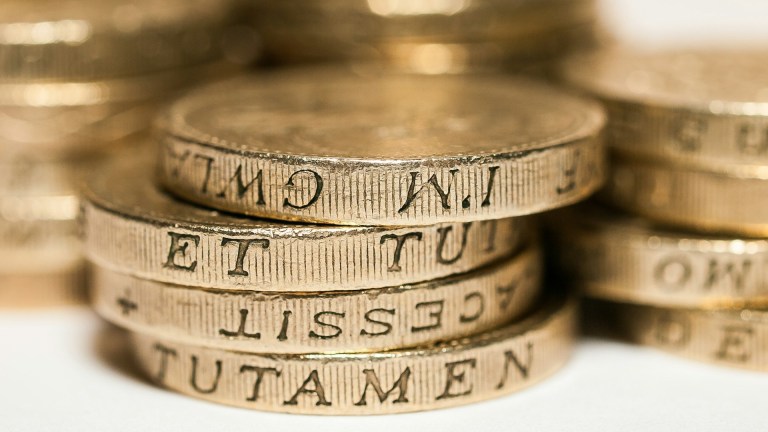“People are already experiencing financial difficulty as a result of rising inflation which has affected the cost of everyday essentials and caused interest rates to soar,” Horne, told The Big Issue.
As well as making the pound in your pocket worth less, recessions usually cause a significant shift in the economy which can cause people to lose their jobs.
During a recession, businesses will likely try to create more financial stability, explains Horne, leading some to freeze hiring new staff or even try to reduce their wage bill. This means there could be fewer opportunities for promotions or pay rises for existing employees or in some cases there may be redundancies.
So what should you do? Here are the steps you can take right now to prepare for uncertainty.
How to prepare your finances, and career, for a recession
“While the prospect of a recession may seem daunting, prioritising good money management strategies can help you take control of your finances”, said Horne.
Budgets help you to better understand your financial circumstances, and help you identify areas where you may be able to cut costs and make a saving.
Advertising helps fund Big Issue’s mission to end poverty
Here are top five steps you can take to get prepared for the economic downturn.
1. Alter your spending habits sooner rather than later
Small expenses on things that are not important can add up, meaning you might have to cut out necessities or purchases that bring you happiness. Try to analyse where you can make changes to your weekly and monthly spending habits and prioritise what is most important for your monthly budget.
Your support changes lives. Find out how you can help us help more people by signing up for a subscription
“It’s useful to create a simple budget plan which highlights bills and outgoings to help you see where you can afford to cut down,” Horne says.
2. Focus on paying off high-cost debts
Over two fifths of Brits currently consider themselves to be in debt, according to new findings from the personal finance experts NerdWallet.
“Having outstanding debts can not only be worrying but can also have a direct impact on your credit score,” says Horne. This can impact your ability to get a loan, credit card, mortgage or other financial products down the line.
Advertising helps fund Big Issue’s mission to end poverty
If you have multiple debts, prioritise repaying high-cost debts such as credit cards or overdrafts first, recommends Horne, and if you have a personal loan, ensure this is paid on time, every month.
3. Build up an emergency savings account
With the uncertainty of the current climate, it’s useful to have a backup fund to be prepared for anything unexpected that may occur such as becoming unemployed, being unable to work, or being faced with more increased costs in the future.
Figure out your expenses and then figure out how much you can save each month on top of that. Set it up as a direct debit to a high interest savings account or ISA and then make sure you stay within your limits each month.
Get the latest news and insight into how the Big Issue magazine is made by signing up for the Inside Big Issue newsletter
You could even get a pre-paid debit card, like Monzo or Revolut, and have that as your only way of paying for things while out and about. Once the money gets low there you have to hold on until next month. It’s a good way of staying within your budgets and separating your bills and savings from other expenditures.
4. Check your credit score
Monitoring your credit score is a good habit to develop and, contrary to popular myth, checking it doesn’t hurt it. Checking your credit score means you’ll be able to see if there’s room for improvement to increase your chances of securing affordable loans in the future, should you need it.
Advertising helps fund Big Issue’s mission to end poverty
There are free options out there at places like MoneySupermarket, Experian and Equifax.
Here are some ways Horne suggests building your credit score:
- Pay off all your debts on time
- Make more than the minimum repayment on credit cards each month
- Put utility bills in your name
- Register to vote
- Avoid using payday loan companies
- Use eligibility checkers before making applications, and reduce the number of credit applications you make
- Clear any outstanding CCJs (county court judgments) or payment defaults in your name
5. Recession-proof your career
If you’re concerned that you could face losing your job in the recession, consider recession-proofing your job to make sure you have the skills, opportunities, and confidence to find work elsewhere.
Start by expanding your existing skills to learn more marketable skills, including transferable, soft, and technology skills, as these are essential for a lot of job roles. This could mean taking up the opportunity for a technology training course your boss has been nagging you to do, or taking on additional responsibilities in your current role so that you can tell future interviewers about your skills.
Make sure your CV is updated and showcases your biggest accomplishments. This will allow future employers to get a better picture of what you can bring to their business.
You might want to consider a second job or side hustle to help support your finances in case you do lose your job or your wages are lowered as a result of a recession, but be wary of the impact overworking can have on your mental health.
Advertising helps fund Big Issue’s mission to end poverty










